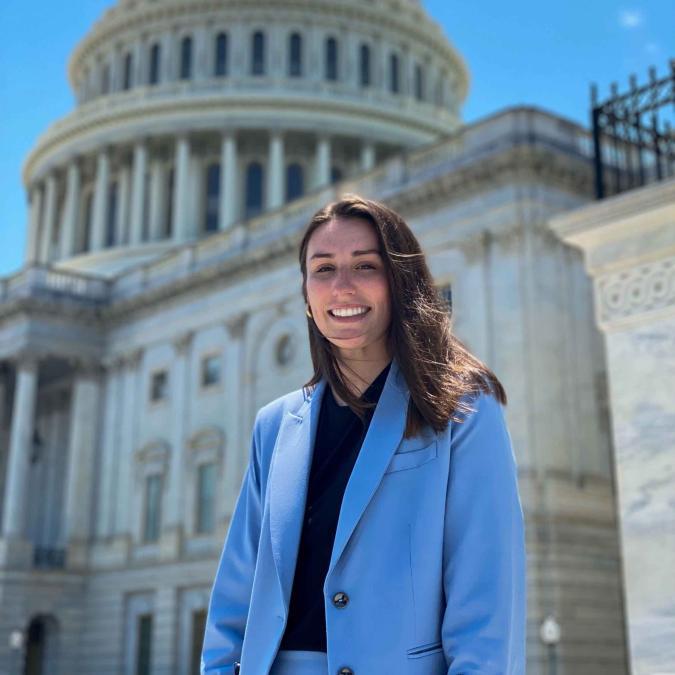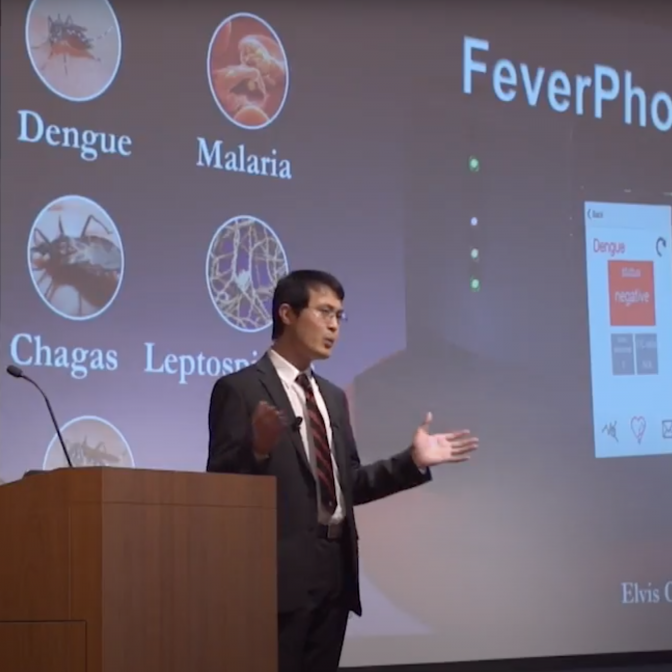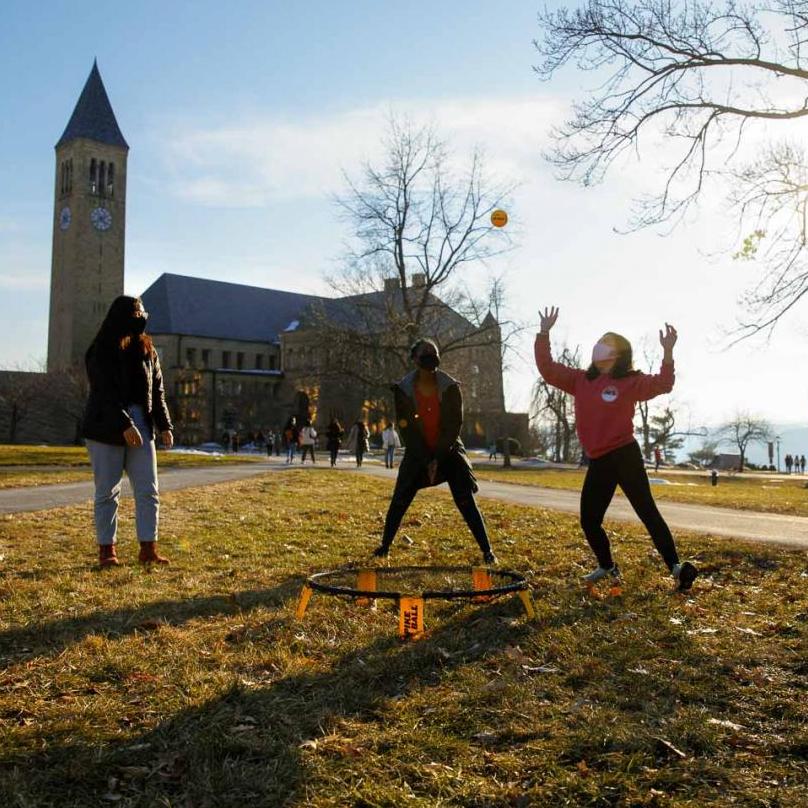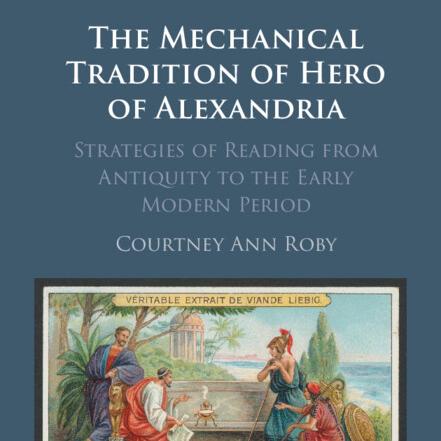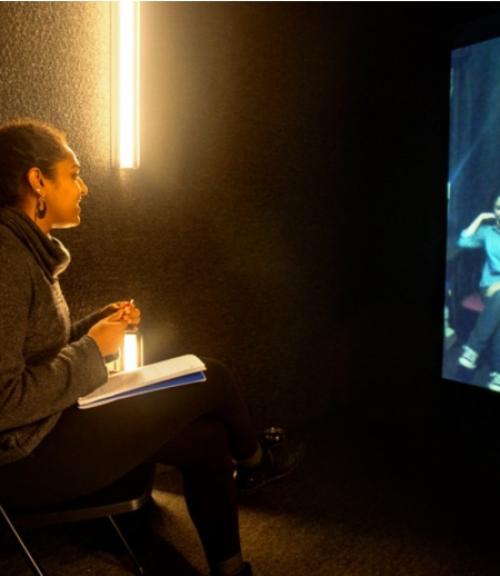Using the Cornell Portal outside Olin Library, Emma Wagner ’21 talked with two young people from Kigali, Rwanda, who told her health care is better in urban areas than rural ones and explained the country’s universal health care system. The Rwandans also asked Wagner about the MeToo movement in the U.S.
“The most surprising thing to me was how similar we all were,” Wagner said. “I was in the portal with three other guys, and the conversation was just so easy and natural. We all pretty much listen to similar music, watch the same shows and even have very similar hobbies.”
Wagner’s conversation about health care was part of an assignment for her Ethical Issues in Health and Medicine class, taught by Kim Overby of the Department of Science and Technology Studies. Each of the 130 students in the class had to choose a session and have a conversation inside the Cornell Portal, a gold-painted shipping container equipped with innovative audiovisual technology and life-sized screens that allows for conversations with other portals around the world.
On Sept. 25, Zoee D’Costa ’19 learned that her opportunities as a pre-medical student in America are a lot different from those available to her contemporaries in Gaza City, Palestine. She also learned about the challenges of traveling in and out of Palestinian territory.
“I felt a really strong connection because I wasn’t just reading something someone had written about their experiences, but actually talking to them,” D’Costa said. “It was the little things – the way they were talking among themselves about the best way to phrase something or arguing about a point. Those things made it a real human experience and interaction for me.”
“Our city is like a box, so talking to you gives us the chance to know you, to know your culture,” said Bilar, 18, one of the young adults D’Costa talked to in Gaza City, adding that this was her second visit to the portal. “It’s really nice to meet new people and talk in other languages.”
Fatema, 21, said doctors and interns in Gaza are qualified but sometimes lack the latest equipment or the drugs they need to treat patients. And patients have trouble securing permissions to travel to hospitals outside Gaza.
Jihan, 22, said there is only one main hospital in Gaza and doctors there are often treating serious injuries from clashes in the ongoing Israeli-Palestinian conflict, so “if you go to the hospital with a headache or a stomachache and you see what they are dealing with, you say, ‘I think I’m fine.’”
Fatema and Tareq, 22, shared their frustrations about travel restrictions, telling D’Costa they had both received fellowships and scholarships to study in the U.S. but could not secure permissions to travel to and from Gaza.
“We have opportunities, we have high marks, but we have a problem with leaving and coming back,” Fatema said.
“They have completely different circumstances and that really shocked me,” D’Costa said. “Understanding the conflicts that exist there and seeing the implications they have on those students was really disheartening.”
Overby said the Cornell Portal gives her students the chance to conduct real-world research on the ways cultural perspectives influence how health care is delivered and received. Overby is a pediatrician who served as medical ethicist and professor of medical ethics and health policy at the University of Pennsylvania before coming to Cornell as a professor of the practice.
“The primary focus is to help students understand that having a relationship and good communication are so important in healthcare and in resolving ethical issues,” Overby said. “And realizing that it may be challenging to talk to someone who has a different perspective, but it’s important to understand how your own perspectives, your culture and your implicit biases can impact that relationship.”
The class is also examining how ethics in the context of bedside care is closely connected to ethical issues at the institutional, social and governmental levels.
This article origninally appeared in The Cornell Chronicle.

